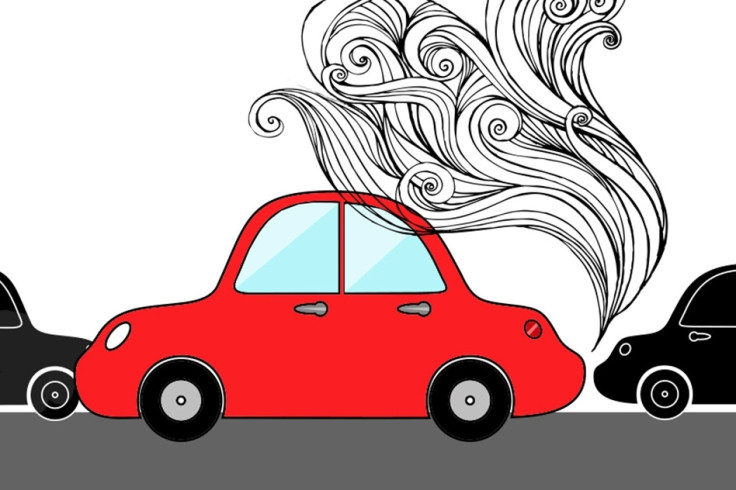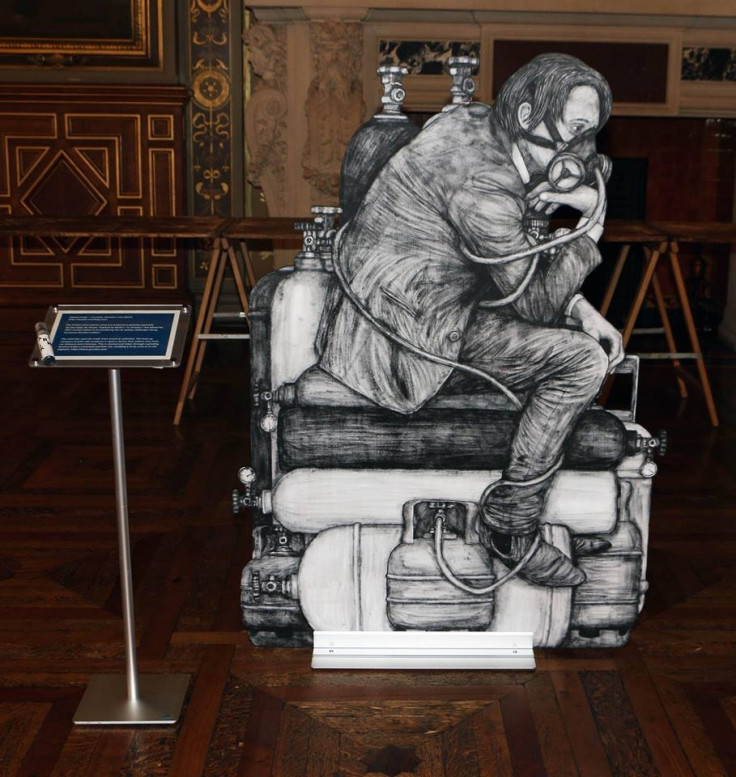This start-up is recycling air pollution by turning it into art
Graviky Labs has developed a technique to make ink from pollution.

A new start-up has found an innovative way to turn the dirty fumes emitted from the burning of diesel into a useful, environmentally friendly product.
The company - Graviky Labs - has developed technology which attaches to diesel exhaust systems in order to capture polluting particles. The soot is then processed and turned into ink – called Air-Ink – for artists around the world to use.
Indian student, Anirudh Sharma, came up with the idea for the company while at home in Mumbai, where he was enjoying a break from his studies at the Massachusetts Institute of Technology (MIT).
During his time in the city - notorious for its air pollution - Sharma noticed his clothes were becoming increasingly dirty.
"I realised this was air pollution, or sooty particulate matter, made of black particles," Sharma said. "This is a major health issue."
This soot is made up of tiny black carbon particles – usually about 2.5 micrometers or smaller – which are produced by the burning of fossil fuels. Chronic exposure to high levels of these particles can lead to lung damage, cancer and other conditions.
A 2013 study estimated that around 5.5 million people die prematurely every year as a result of air pollution. And in India - the world's second most populous country - the problem is particularly acute, with air pollution linked to anywhere between 1.1 million and 1.4 million premature deaths over the past few years.
"It's pretty dire here," Sharma said. "Primary schools have been shut down because of air pollution. It's a catastrophe. I wanted to create technologies that are new and can have a large social impact, and that brought me back here."
Sharma then set up Graviky Labs to try and mitigate the problem and have a "real-world" impact.

The company has developed a cylindrical device – called KAALINK – which can be fitted to the exhaust systems of vehicles and diesel generators. Using a special filter, it can attract and trap 85-95% of the polluting particles emitted by these systems.
Each KAALINK device can be used for between 15 and 20 days, at which point users empty the disposable filters lodged inside and send them to Graviky Labs for processing into ink. Heavy metals and other harmful chemicals are removed during this process.
The start-up has rolled out a pilot programme across India and has so far captured around 1.6 billion micrograms of particulate matter, which equates to cleaning roughly 1.6 trillion litres of air. This soot has been converted into nearly 1,000 litres of ink that has been used by artists across the world.
"Less pollution, more art. That's what we're going for," Sharma said. "We create a recycling stream from particulate matter waste that would have otherwise gone into our lungs."
The company's efforts have won them numerous awards, including a gold at the Cannes Lions festival for outdoor innovation. And now Sharma is looking to spread the message.
"Air pollution knows no borders," he explained. "It's in India, Boston, and places all over the world. Our ink sends a message that pollution is one of the resources in our world that's the hardest to capture and use. But it can be done."





















